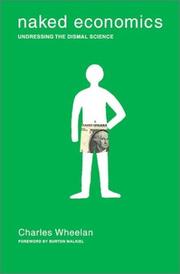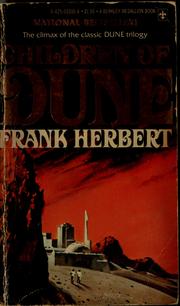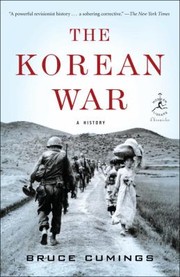This book's title first appeared in Mbembe's 2003 article by the same name. "Necropolitics" builds upon Foucalt's concept of biopower, and is a way of theorizing how social and political power are used to dictate how people live and die. Mbembe's work isn't simply concerned with the state's right to kill (or decide who may live), but also examines how sovereignty is used to impose and maintain forms of social and political death. The treatment of refugees and migrant workers from Africa and the middle east at European borders is used as a powerful demonstration of Mbembe's "necropolitics". Through various justifications, such as a person's lack of state identification or by casting doubt on the legitimacy of a person's claim to being a refugee, states are able to cordon away vast numbers of people seeking sanctuary at their borders. It's common to see this cordoning take shape as a refugee camp, with its occupants being restricted from meaningful forms of participation in society. Holding people in bureaucratic limbo, refusing to recognize their personhood and limiting what assistance is rendered, confers a status of living death upon the people caught within these circumstances.
We're going to spend years dealing with the fallout from the world's worst pandemic in recent memory, and the US's treatment of immigrants (both within and at the country's borders) is in urgent need of change. Mbembe's book provides tools for understanding how cruelty is systematized and maintained by states, and how social and political power is used to render certain people expendible. Perhaps more importantly, its perspective helps link what might seem like separable crises and injustices to common practices of management that modern states employ.
This was a good one. I think it'd make a fantastic a graphic novel in the pulp comic style from the era the book is set in. It feels appropriate that the book was picked up for adaptation into a mini-series; its episodic narrative feels really appropriate for TV as a medium. Ruff's storytelling is masterful in how it blends the fantastical elements of the fictional mythos it draws upon, but also in how it surfaces the real and pernicious horrors of segregated US society in the mid 20th century. The middle chapter, "Jekyll in Hyde Park", is a great example of this.
This one took me a little while; I picked it up after my partner finished it sometime in 2021. The story follows Saeed and Nadia, a couple who meet while their country falls into a civil war. While Saeed and Nadia become closer, the conflict in their country worsens. They learn that people have been able to escape to other countries via doors that open to other places, all over the world. As fiction, these elements mark how Exit West engages with numerous contemporary subjects and themes. Imagining doors that can instantly transport people abstracts away some of the journey that actual immigrants and refugees make, but this story device helps highlight how a country's borders are politically constructed. States can (and do) commit resources to constructing physical barriers to passage, but lacking wider coordination across economic and political blocks, these efforts are insufficient. Our world is globalized; our humanity is fluid; our lives are destined for exchange in innumerable forms (visible to us, or not). Exit West's story feels like a recognition of this.
This was given to me as a Christmas gift. I'd describe this book as a guide to understanding how economics-related terminology appears in business news, with some standard explanations of marginal analysis and efficiencies offered from markets. It might be a bit too self certain for my taste; at times it feels more like an apology for capitalism, rather than a survey of a social science. I remember discovering the author was a contributor to the Economist and thinking that made sense. If you're wanting a broader view of the discipline, I think I would recommend Economics: The User's Guide by Ha-Joon Chang over this one.
I read Dune for the first time in 2021, picking it up in the run-up to Dune: Part 1 with a trio of friends who also hadn't ever read the book. I was the only one who continued on with Messiah. My partner's father enjoyed the books when he was growing up, so borrowing his copy was easy enough. This book is much shorter than Dune, and lighter on the worldbuilding that the first book is known for. While the palace intrigue involving the resurrected Duncan Idaho was interesting, I remember the story being mostly a bludgeoning of two points: Paul is not a hero, actually, and Paul is trapped by consequences of forces he set in motion. I've read that Herbert wrote Messiah in part because he felt that a substantial part of his audience misunderstood the first book. However much that's true, it's hard to escape that perception. In my opinion, it's easy to pass over much of Herbert's latent politics in the first Dune; the story is ultimately very conventional in its structure (an archetypal story of righteous vengeance amongst feuding nobles), while being dressed in a fantastic sci-fi universe. Messiah, however, is unmistakable in its suspicion of centralized authority and powerful leaders, to an almost absurd degree.
Okay, these books are definitely getting... weirder. Big-picture, the universe's empire is facing a crisis of legitimacy, and Paul's jihad is spreading uncontrolled. The protagonists(?) are Paul & Chani's twins, psychically endowed with memories and cognitive capability far beyond their physical age. An assassination plot drives most of the story's events, and at the end, another Atreides (Leto II) has been declared emperor. In thinking back to when I read it, I'm not as sure where things are going at this point. Prescient sight of the future, something Leto posesses, motivates his efforts to continue the "Golden Path" from where Paul left off. Where Dune and Messiah might grapple with the horrors that holding prescience entails, Children of Dune seems to rebuke Paul for not having the necessary resolve to "do what must be done".
I'm not sure how to square this turn with the reading of Dune and Messiah as criticisms of authority. Perhaps, we should be understanding Leto's actions and intentions as being monstrous, but my feeling is that the novel is closer to being sympathetic to him. The prescient visions held by the Atreides line predict the extinction of humanity if the Path isn't followed. We're not given much to cast doubt on these abilities; thus, what reasons do we have to condemn Leto's desired ends? Why shouldn't we understand prescience as being a sci-fi instantiation of Plato's philosopher king? It seems like we've gone from being concerned about vesting too much power into one political leader to endorsing it. Maybe I've missed the point, but it feels like the third book is an inversion of what some of what Hilbert was saying in the first two.
Out of all of the books I read this year, I think this one was the most impactful. As Cummings notes about the war, citing Richard Stokes (p. 92):
... the thing we need to know first: it was a civil war, a war fought primarily by Koreans from conflicting social systems, for Korean goals. It did not last three years, but had a beginning in 1932, and has never ended.
For Americans, the war has largely been "forgotten", in that its public memory is tinged with shame and obscured by the fog of the cold war. But, our understanding is harmed by truncating the war to 3 years in the 1950s. Chapter 5, "38 degrees of separation: a forgotten occupation, illustrates how the US unilaterally determined how Korea would be divided postwar, and set up an occupation government. In 1946, the occupation commander (General Hodge) took steps against direct orders from Washington to begin remilitarizing the South. The US-advised Korean Army and National Police of the South were then used to suppress rebellions and suppress the people's committees that had emerged in 1945 (independent of the North). These uprisings were born from Korean frustration with the American occupation and political repression. Research cited by Cummings suggests that perhaps as many as 100,000 Koreans were killed before June 1950; it's likely that most of these deaths stem from the repression of an uprising on Cheju island in the southeast.
I agree with Cummings assertion that it's critical to understand the conflict we've named the "Korean War" as being emerged from a longer history of occupation and imperialism. Rather than respecting Korean rights to self-determination, the country (and its people) has been continually subordinated to the interests of more militarily and economically powerful states. As US citizens, we have an obligation to understand the nature of this conflict and how its consequences continue to shape the local and international politics of Korea. If you were to pick up only one of the books I've listed from this year, this is the one I'd give you.






